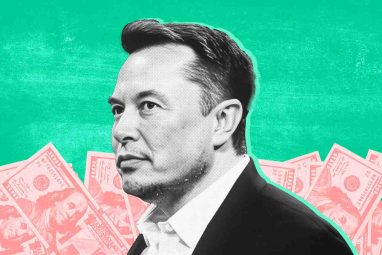Perplexity Voted Weakest Bet at AI Conference
The poll offered a rare glimpse into what Silicon Valley insiders say privately about the risks facing the most celebrated AI players.
Topics
News
- Nvidia CEO Pushes Back Fear of AI Replacing Software Tools
- OpenAI Recruits Anthropic AI Safety Veteran Amid Senior Staff Departures
- Waymo Secures $16 Billion to Expand Robotaxi Operations Worldwide
- OpenAI, Snowflake in $200 Million Deal to Embed AI in Enterprise Data
- Musk Merges SpaceX and xAI in Deal Valued at $1.25 Trillion
- TASC Group Appoints New CEO To Lead AI-Driven Growth in the MENA Region

Perplexity, the fast-rising AI search startup, was voted the company most likely to fail at this year’s Cerebral Valley AI Conference, a result that lays bare the unease running through Silicon Valley’s AI circles.
The outcome came from an audience poll at the AI conference in San Francisco, where more than 300 founders and investors were asked which high-profile AI startup they were least confident about.
Perplexity topped the list in the survey, conducted by conference organizer and independent journalist Eric Newcomer, followed closely by OpenAI, placing the industry’s two most talked-about companies at the centre of fresh doubts.
Though the poll was unscientific, the responses reflected a mood shift: that money is still flooding AI, but confidence in some of its highest-valued companies is starting to wobble.
Perplexity’s first-place finish did not surprise close watchers. Business Insider recently reported that the company has raised several funding rounds in rapid succession, with valuations ranging from about $14 billion to as high as $50 billion.
When asked for comment, company spokesperson Jesse Dwyer leaned into humour, telling Business Insider: “Geeze, it sounds more like the judgmental valley conference.”
OpenAI landing in second place raised more eyebrows. As the creator of ChatGPT and a global AI bellwether, OpenAI is still seen as the industry’s front-runner, with unmatched consumer reach and enterprise adoption.
But its size and the enormous infrastructure spending required to sustain it have stirred quiet unease among some investors.
In a recent conversation with investor Brad Gerstner, CEO Sam Altman dismissed concerns that OpenAI’s valuation or spending commitments were excessive.
When Gerstner questioned how a company with $13 billion in revenues could commit to $1.4 trillion in future spending, Altman responded bluntly: “If you want to sell your shares, I’ll find you a buyer. Enough.”








